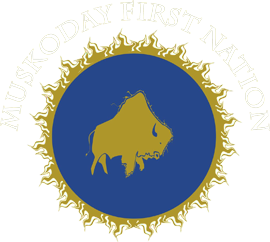Two Sask. First Nations are another step closer to enforcing and prosecuting their laws on-reserve.
The Muskoday First Nation, the Whitecap Dakota Nation and the Ministry of Justice signed a Memorandum of Understanding to create a task group which will consider ways First Nations laws enacted under First Nations Lands Codes and bylaws enacted under the Indian Act can be enforced on reserve.
“It has been difficult to prosecute and enforce laws created by our First Nation,” Whitecap Dakota Chief Darcy Bear said. “This MOU enables the parties to explore the processes and the potential roles we all play in addressing on-reserve gaps in law enforcement. Ultimately, our hope is that this agreement will create a path forward to increase public safety and build investor confidence to attract more business onto reserve lands.”
Both Chiefs say they want to examine existing and potentially new policing, prosecution and judicial mechanisms to ensure their laws are enforceable.
“Muskoday First Nation has a treaty obligation to keep the peace, and maintain good order,” Muskoday First Nation Chief Herman Crain said. “Our community has tried to meet that obligation by enacting a number of Indian Act bylaws and Land Laws written under our own Land Code and the Framework Agreement on First Nation Land Management, but without a proper system to enforce these laws, it is impossible to uphold such laws and make people accountable.”
The task group will begin its work immediately and will look to collaborate on investigations, laying of charges and prosecuting First Nations laws.
“This agreement is a significant opportunity to ensure consistency in the way laws are enforced on First Nations and to strengthen the relationship between the provincial government and First Nations,” Attorney General Don Morgan said.
The agreement could also create community safety officers or peacekeepers on-reserve.
(Photo: Muskoday First Nation logo.)
